'What good did that do?' Homeless people scramble after sudden camp demolition | Grumet
Jack Smith saved what he could. His pitbull mix, Lady. Her nine puppies, just eight days old. Three bicycles he has been fixing up to sell, which is how he earns a living.
“They got everything else: food, tents, everything,” Smith told me bitterly, nodding toward the roaring Austin Resource Recovery trucks that tore apart his homeless encampment Monday and trashed nearly everything he’d amassed for his survival.
Crews even bulldozed the small pet cemetery where Smith’s dogs Molly and Max had been buried, a spot near Onion Creek marked by painted stones and a white fence.
“They just come here and destroy our lives, and then they leave,” Smith, 51, fumed.
Whatever you might expect a homeless camp cleanup to look like, this was worse.
No advance notice that city demolition crews were coming Monday, according to Smith and five other residents I spoke with. No time to relocate — not that there’s anywhere our progressive city allows them to be. No referrals to shelters, which are full anyway. No purple bins for people to send important belongings to Violet KeepSafe Storage, the city-run storage facility for people experiencing homelessness.
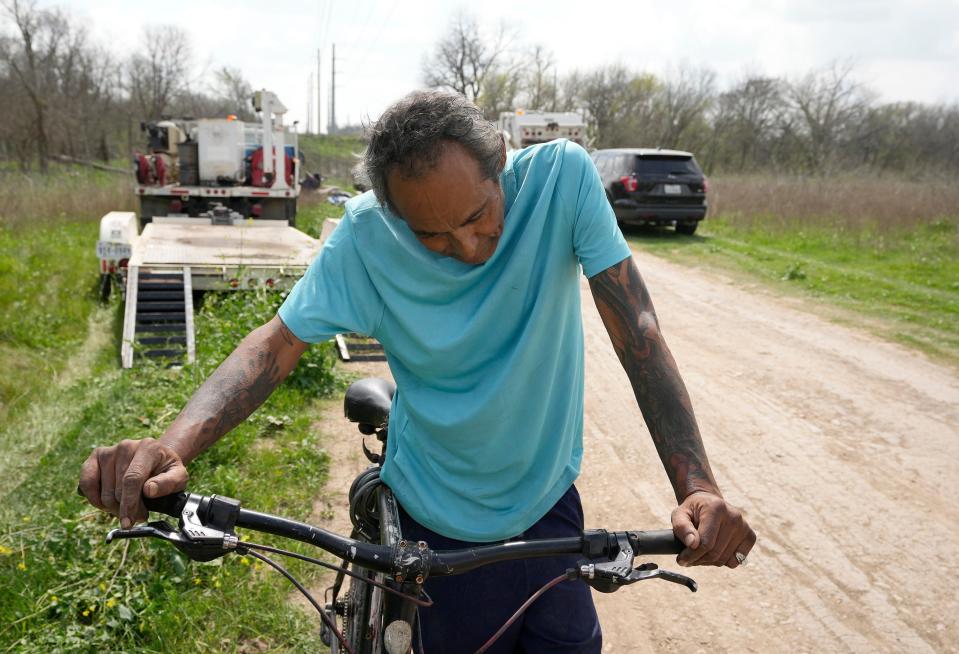
Instead, residents had a few minutes to take whatever they could carry away before crews driving Bobcats dismantled the first of several camps in the woods off Brandt Road in Southeast Austin. A worker knocked down a plywood wall with a hammer. The giant claw of a grapple truck scooped heaps of rubble — old sofas, planks of wood, weather-worn papers — into dump trucks.
On Monday alone, city crews hauled away 13 loads of debris weighing a total of 30 tons, using a fleet of trucks and equipment primarily dedicated to homeless camp cleanups.
See the new data: Austin increases bed capacity for individuals experiencing homelessness.
So much futility underscored this work. More than a dozen people who were homeless would remain homeless, only worse off. Smith, who prides himself on working instead of panhandling, lost so much of his bicycle-building supplies that he figures he’ll end up on a street corner begging for spare change.
“What good did that do?” Smith asked as dump trucks hauled away the remnants of the camp. “Is the city better off now?”
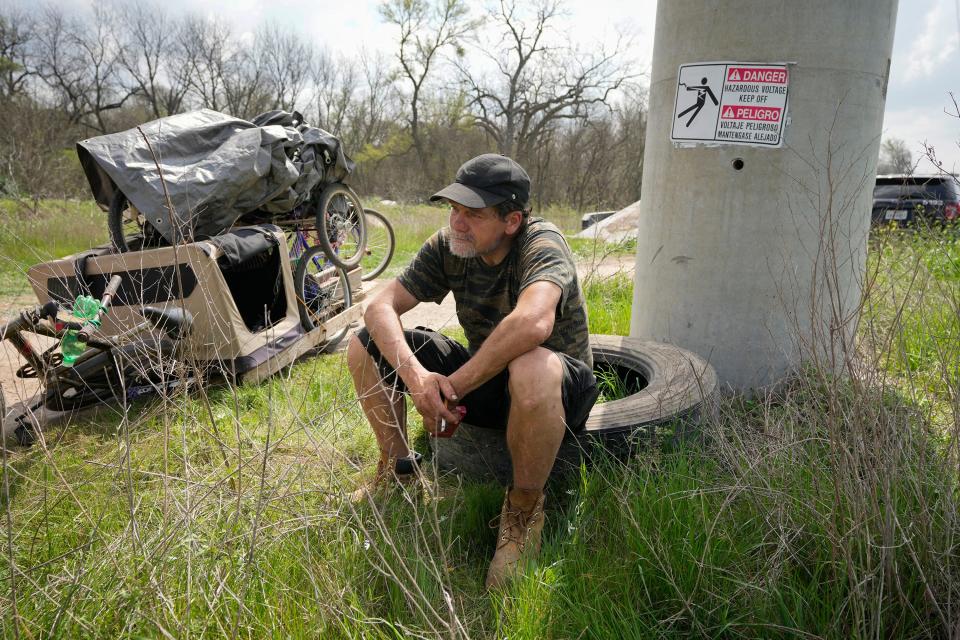
For all of the millions that Austin has poured into addressing homelessness — nearly $81 million budgeted this year, on top of roughly $220 million over the past three years — precious little help has trickled into these camps. Housing assistance waiting lists are so long that some folks are told they’ll never make the cut.
Camping bans tried to wish away homelessness without making a dent in it. Since 2021, when Austin voters and Texas lawmakers passed anti-camping measures, Austin’s unsheltered population rose from 2,238 to 4,034, according to data by the Ending Community Homelessness Coalition, better known as ECHO.
Sidewalks, parks and highway underpasses are off-limits to homeless camping — understandably so. But technically, so is everywhere else. Those who gravitated to this empty 25-acre tract along Onion Creek figured this was their best bet, camping on city-owned scrublands bisected by massive electricity transmission lines that surely made this remote spot uncoveted.
Except even here, their existence is a problem that must be removed by heavy machinery.
In response to questions I sent late Monday about what I saw, city spokeswoman Jenny LaCoste-Caputo said the city has aimed since 2021 to close camps compassionately while connecting residents with services.
"However, sometimes immediate threats to safety mean the city must employ a rapid response, which is what happened in this case," she said, adding that Austin police had received complaints about criminal activity, and city officials were worried about people living so close to the flood plain.
More: How Maximizing Hope's laundry events play key role in ending the homelessness cycle in Austin
The city recently created a Homeless Strategy Office to better coordinate the cleanups and outreach efforts happening across departments. But that office wasn't notified in advance of this cleanup, LaCoste-Caputo said.
"In the future, (the Homeless Strategy Office) will be consulted so that outreach — even if it is necessarily abbreviated due to an immediate safety concern — can be conducted," she said.
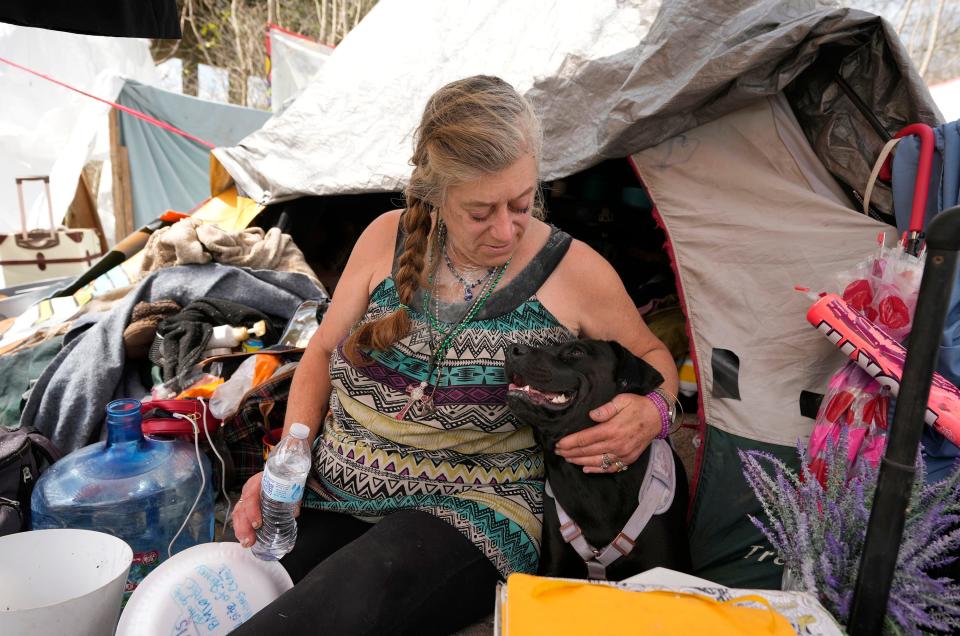
But I've heard stories about other sudden camp demolitions for months from people who are homeless, as well as from the nonprofit folks who try to help them. There has got to be a more humane way to treat people who are just scraping by.
If criminal activity is the problem, address the issue with the individuals who are responsible instead of obliterating entire encampments. If the location along the flood-prone banks of Onion Creek is a problem, show people where they can move and give them a few days to do it. If trash is a problem, schedule collaborative cleanups where city-hired crews work with residents to remove excess or dangerous debris while preserving survival gear.
Instead, these abrupt camp demolitions leave their residents hungry, depleted, traumatized and unprotected from the elements. How is this part of Austin’s homeless response strategy?
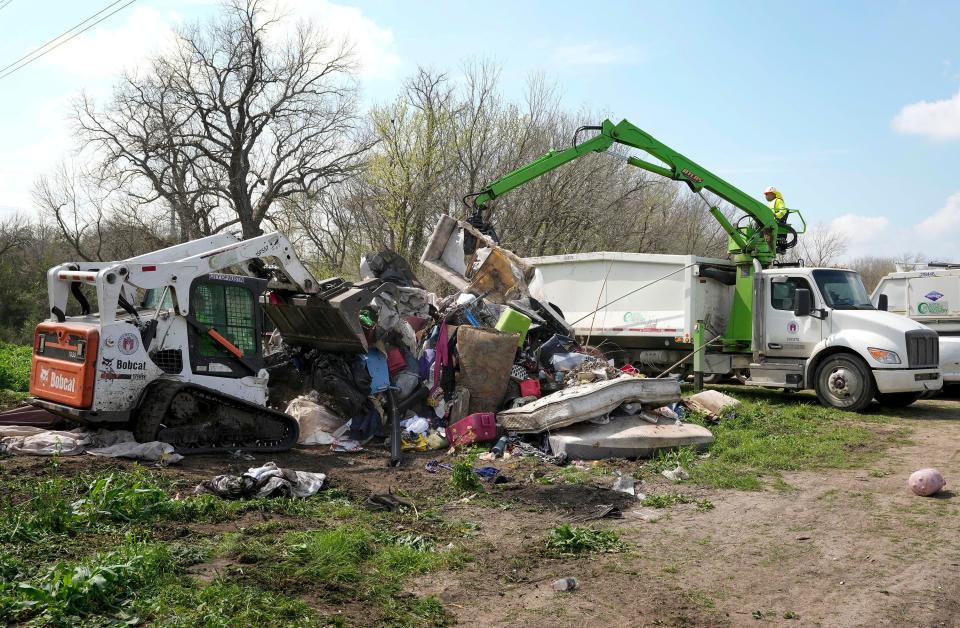
“I don’t even have a tarp any more. I don’t know what the hell I’m going to do,” Mario Fonseca, 53, told me as he pushed his bicycle away from the cleared campsite. Replacing what he lost would cost hundreds of dollars he doesn’t have.
Kent Romines piled his generator, a sleeping bag and a box of potato chips into a wheelbarrow. He thought of his wife, in the hospital that day for a minor surgical procedure, and what a shock it would be for her to return to their vanished encampment. He couldn’t even salvage their tent.
This spot had been their home for the past two and a half years.
“I don’t know where I’m going,” Romines, 64, told me with the same blank look I’ve seen in the eyes of people who’ve lost their homes to fires or floods. Only this disaster was human-made and purposeful, funded by our tax dollars.
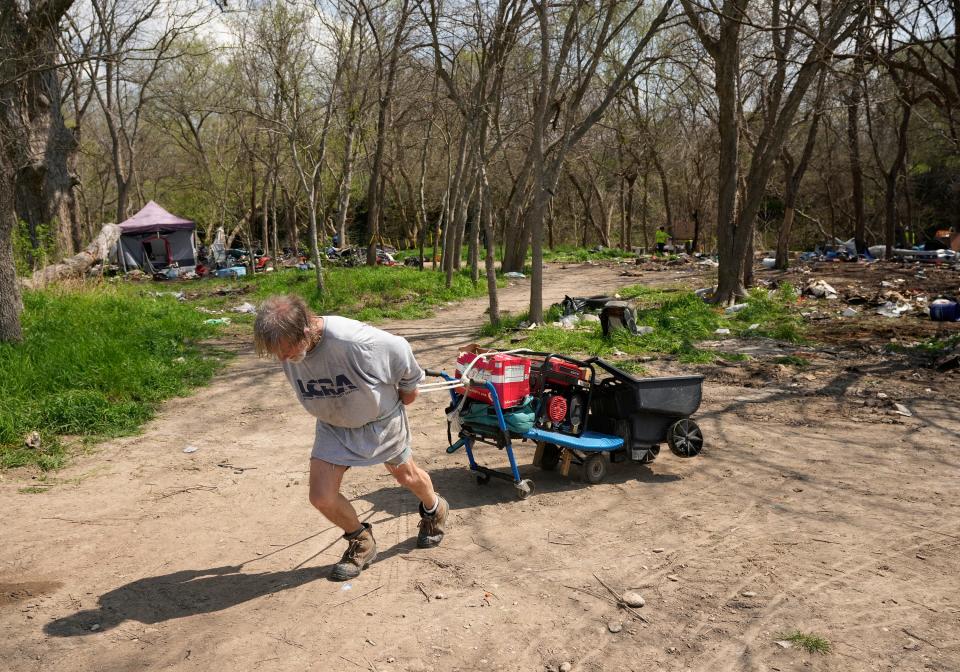
Further down the dirt road cutting through the greenbelt, residents in other clusters of tents packed up, knowing the crews would be back for them on Tuesday.
“We’re homeless. We don’t have much. What we do have, it’s taken a minute to get,” said Ann Marler, 61, whose tent was about 500 feet from where Smith, Romines and Fonseca lived. Even with a friend coming to help her move, she expected to lose 90% of her things, including a propane-powered space heater that was too big to carry away.
More: Austin kills million dollar McKinsey & Company audit of homelessness contracts, programs
Closer to the creek, Ryan Green loaded his pickup with scrap metal he hoped would fetch a few hundred bucks. He knew this day would come. He’d already been looking for the next place to set up camp.
“I know it’s going to be for naught,” Green, 51, said of any new campsite. “They’re going to kick us out.”
Grumet is the Statesman’s Metro columnist. Her column, ATX in Context, contains her opinions. Share yours via email at bgrumet@statesman.com or via Twitter at @bgrumet. Find her previous work at statesman.com/news/columns.
This article originally appeared on Austin American-Statesman: Homeless people scramble after Austin crews demolish camp | Grumet

